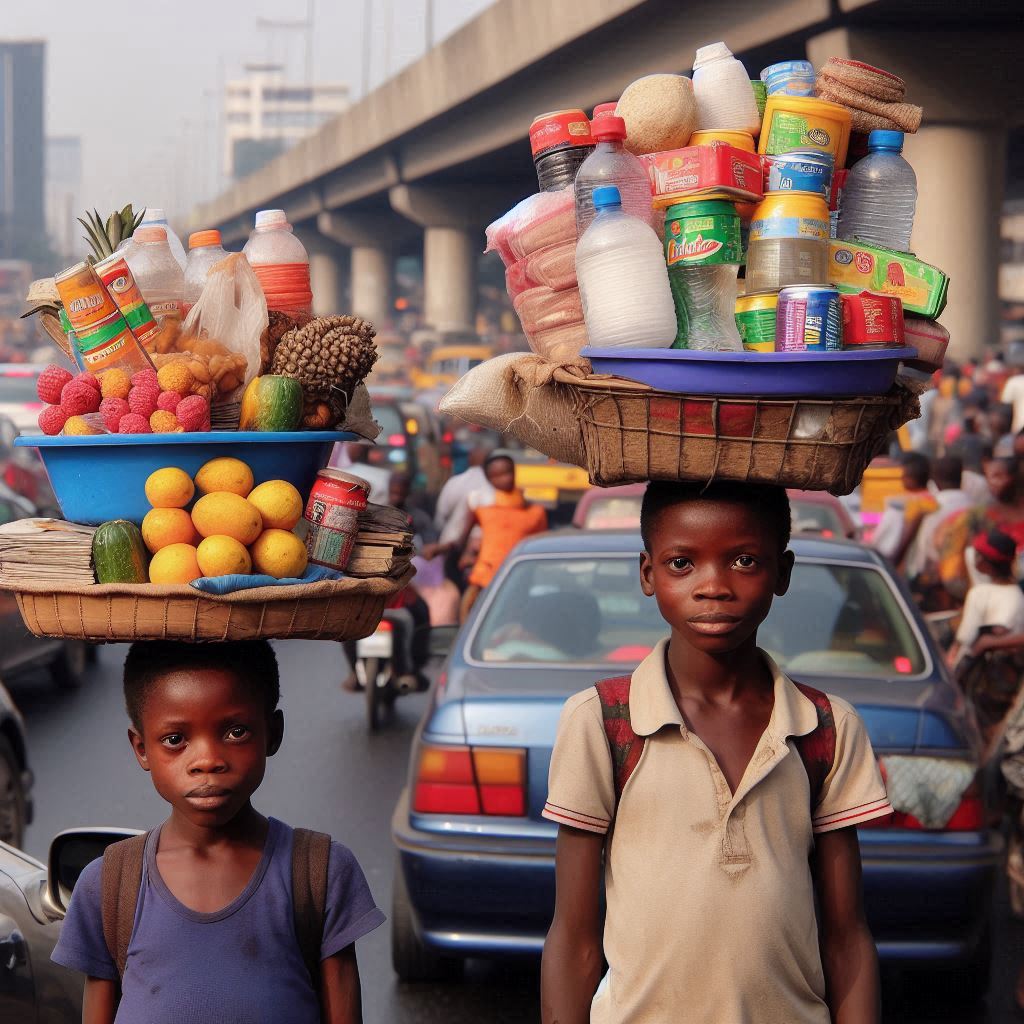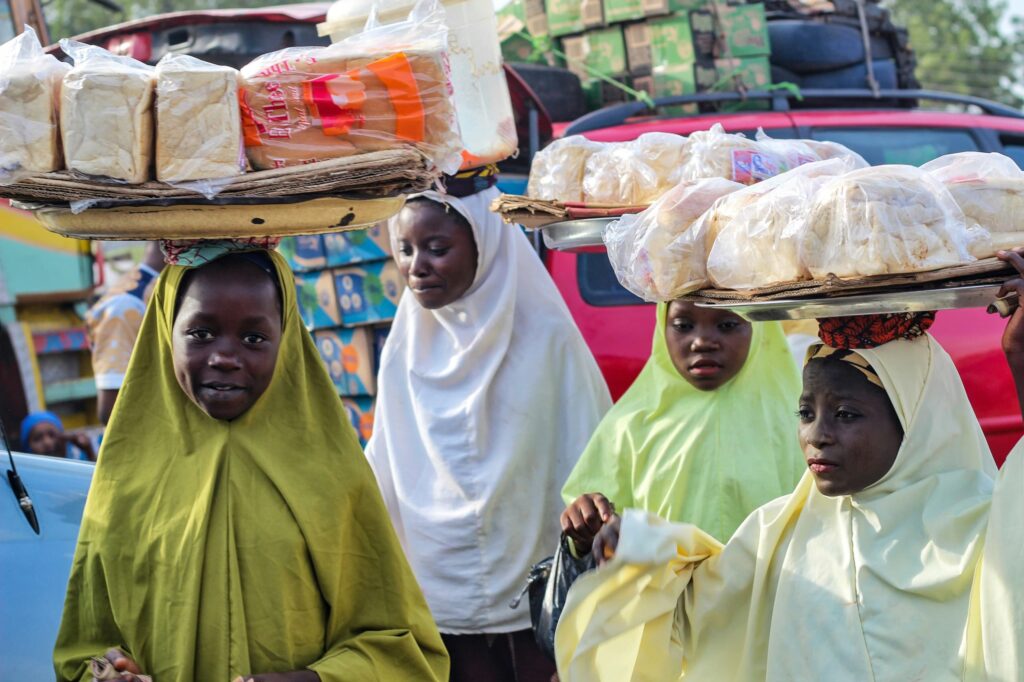Child labour remains one of the most prevalent forms of child abuse across Nigeria. Despite several child protection laws, particularly the Child Rights Act of 2003, child labour persists. The most common common forms of child labour in Nigeria are street hawking and using children as housemaids. It is common to see children selling essentials like drinks and sachet water in traffic while their peers are in school. Similarly, it is not unusual to hear or see a child living with a family member or non-family member, assigned all the adult chores in the house and severely punished for any default.

It is well known that a child is most likely to experience their first instances of abuse—whether verbal, physical, or sexual—while engaged in child labour. Child labour exposes children to numerous dangers, including kidnapping and trafficking, which further increases their inherent vulnerability. Child labour not only deprives children of education and a proper childhood but also exposes them to various forms of abuse and exploitation.
During my internship at the Department of Anti-Human Trafficking and Child Protection Unit of the NSCDC, I gained a closer look at the issues linking child labour to both physical and sexual abuse. Many cases initially reported as child labour were found to also involve sexual abuse, revealing that children were often exploited while selling goods on the streets. These are heartbreaking experiences for any child to endure.
Child labour leaves many lasting impacts on its victims. It causes physical and emotional scars, forces the premature adultification of children, and exposes them to situations and experiences that negatively shape their development. In Nigeria, the common excuse for child labour is the absence of social welfare systems that exist in Europe and other developed countries. Parents and families fending for themselves often feel they cannot be told how to raise their children. Consequently, children are forced to contribute to the family’s income through street hawking or are given to families that abuse them in various ways. However, it is crucial to continue to emphasize that it is the responsibility of adults to provide for their children, not the other way around.
On this World Day Against Child Labour, I am calling upon the government, agencies, and relevant bodies to take stronger action to eradicate child labour in Nigeria. I am recommending that:
1. Legislation and Enforcement on Child Labour be Strengthened: Laws against child labour must be enforced more rigorously.
2. Increase Public Awareness: Educate the public on the dangers and illegality of child labour, and the consequences for those who engage in it, whether as a parent, guardians, or just ordinary citizens.
3. Enhance Access to Education: Ensure that education is free and accessible from nursery through senior secondary schools. Remove financial barriers to education, similar to the early 2000s
4. Supporting and Collaborating with Organisations: Work hand in hand with organisations and agencies combating child labour like the Department of Anti Human Trafficking and Child Protection Unit of the Nigerian Security and Civil Defense Corps Headquarters, Agodi, Ibadan, Oyo State by providing them with the necessary resources to amplify their impact;
5. Establish Accurate Anonymous Reporting Mechanisms: Create accurate and anonymous reporting channels for child labour and abuse cases to foster intervention and prevent reoccurrence.
Together, we can make significant strides toward eradicating Child Labour in Nigeria, making a difference for these innocent children, and securing a better future for them. Let us give them the childhood they deserve, ensuring they have the opportunity to grow, learn, and thrive in a safe and nurturing environment.
Aanu Oluyide
Karim Adeyemi Foundation

